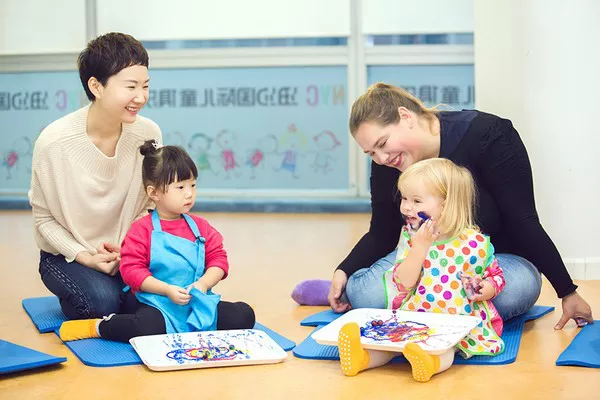Friendships are a cornerstone of our social support networks, providing companionship, understanding, and shared experiences. However, when your best friend starts avoiding you, it can be disheartening and confusing. In this article, we’ll explore practical strategies for addressing avoidance from your best friend with empathy, communication, and understanding, fostering a healthier and more transparent dynamic in your friendship.
Recognizing the Signs of Avoidance in Friendship
When your best friend starts avoiding you, it’s essential to recognize the signs and patterns of avoidance behavior. This may manifest as canceled plans, unanswered calls or messages, or a general reluctance to engage in meaningful conversation or interaction. Pay attention to changes in their behavior and communication patterns, and trust your intuition if you sense that something is amiss. By recognizing the signs of avoidance early on, you can take proactive steps to address the situation and work towards resolving any underlying issues.
Approaching the Situation with Empathy and Understanding
When addressing avoidance from your best friend, it’s important to approach the situation with empathy and understanding. Avoid jumping to conclusions or making assumptions about their intentions; instead, consider the possibility that they may be dealing with their own challenges or struggles that are impacting their behavior. Take the time to reflect on your own feelings and reactions to the situation, and strive to maintain an open mind and heart as you navigate the conversation. By approaching the situation with empathy and understanding, you create a safe and supportive space for honest communication and resolution.
Initiating an Open and Honest Conversation
Communication is key when addressing avoidance from your best friend. Initiate an open and honest conversation to express your concerns and feelings in a non-confrontational manner. Choose a time and place where you both feel comfortable and relaxed, and frame the conversation in a way that encourages dialogue and mutual understanding. Use “I” statements to express how their avoidance is impacting you and your friendship, and actively listen to their perspective without interrupting or dismissing their feelings. By fostering open communication, you can gain insight into their reasons for avoiding you and work towards finding a resolution together.
Exploring the Root Causes of Avoidance
During your conversation, take the time to explore the root causes of your best friend’s avoidance behavior. They may be dealing with personal issues, such as stress, anxiety, or depression, that are affecting their ability to engage in social interactions. Alternatively, there may be unresolved conflicts or misunderstandings between you that need to be addressed in order to move forward. Approach the conversation with curiosity and compassion, and encourage your friend to share their thoughts and feelings openly. By understanding the underlying reasons for their avoidance, you can work together to find constructive solutions and rebuild your friendship.
Offering Support and Understanding
Regardless of the reasons for your best friend’s avoidance, it’s important to offer them support and understanding during this challenging time. Let them know that you’re here for them if they need someone to talk to or lean on, and reassure them that you value their friendship and want to work through any issues together. Avoid placing blame or judgment on them for their behavior; instead, focus on fostering a sense of empathy, compassion, and solidarity. By offering support and understanding, you demonstrate your commitment to maintaining a strong and resilient friendship, even in the face of challenges.
Setting Boundaries and Managing Expectations
While offering support and understanding to your best friend is important, it’s also essential to set boundaries and manage your own expectations in the relationship. If their avoidance behavior persists or becomes emotionally draining for you, it’s okay to take a step back and prioritize your own well-being. Communicate your boundaries assertively and respectfully, and let them know what you need from the friendship moving forward. Remember that it’s not your responsibility to fix or change their behavior; ultimately, they are responsible for their own actions and choices. By setting boundaries and managing your expectations, you can protect your emotional health and maintain a sense of balance in the friendship.
Seeking Support from Other Friends and Loved Ones
If your best friend’s avoidance continues to impact your well-being and the health of your friendship, don’t hesitate to seek support from other friends and loved ones. Surround yourself with people who uplift and support you, and lean on them for emotional guidance and validation. Engage in activities and hobbies that bring you joy and fulfillment, and prioritize self-care and self-love as you navigate the challenges of your friendship. Remember that you deserve to be surrounded by people who value and appreciate you, and don’t be afraid to seek out new connections and friendships if necessary.
Conclusion
In conclusion, addressing avoidance from your best friend requires empathy, communication, and understanding. Recognize the signs of avoidance behavior and approach the situation with empathy and compassion, initiating an open and honest conversation to explore the root causes of their behavior. Offer support and understanding while also setting boundaries and managing your own expectations in the relationship. Seek support from other friends and loved ones as needed, and prioritize your own well-being and emotional health. By navigating friendship challenges with compassion and communication, you can strengthen your bond with your best friend and foster a healthier and more resilient friendship in the long run.
Related topics:





























